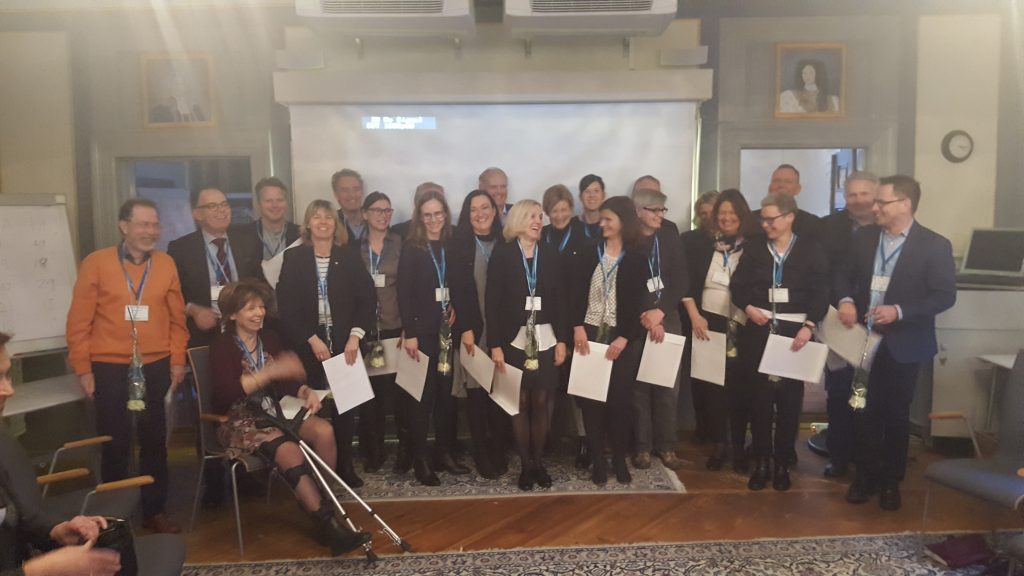Discussing equality at academic leadership programme
The dean of higher education, Annika Östman Wernerson had asked med to join her for an afternoon at the advanced leadership programme she is currently attending. Known as HeLP, Högre Ledarprogram/Higher Leadership Programme, this training is organized by the Association of Swedish Higher Education (Sveriges universitets- och högskoleförbund, SUHF).
This programme is important in many aspects; It equippes participants with important tools and experiences in their own formal and personal leadership. Personal leadership is a continuous process where there is always scoop for development, the nature of which is dependent on one’s previous experience and present position. The programme is also important as it is an opportunity to network with other academic leaders from universities and higher education authorities all around Sweden. We can all learn from each other and there are many questions and challenges which we should discuss and develop together within our sector.
Discussing equality
This afternoon all participants’ rectors had been invited, and the afternoon ended with handing out of diplomas by Helen Dannetun, Rector at Linköping university and Chairperson of SUHF. But prior to that, we enjoyed a very interesting afternoon on the theme equal opportunities. The course participants had prepared activities – a mixture of panel discussions, mentometer surveys and sketches. It became very apparent that although we think we know what equality and equal opportunity is, we did not always see the obvious. This was a very important “eye opener” that knowledge is not enough, one has to always be observant and challenge one’s perspectives, not least by interacting with and listening to others who have different experiences than yourself. I left the day with a feeling of being inactively competent.
Looking far enough?
There was also an interesting discussion on how to advice a young female researcher whether to take a leadership role or not. Clearly different opinions were expressed but at the end of the day, it is only the individual herself who can decide. Lina Thomsgård, the founder of Rättviseförmedlingen presented a very interesting lecture on the theme; The balance, or rather imbalance, between males and females in media, culture, business and other contexts. She founded Rättviseförmedlingen as a response to the statement “we did not find any female candidates”. Rättviseförmedlingen uses the power of social media to search for a diversity of candidates for different positions. Are we perhaps not looking far enough when searching for candidates for tasks within our own university?

Participants in the davanced leadership programme with their diplomat. KI dean of higher education on the chair to the left.


0 comments